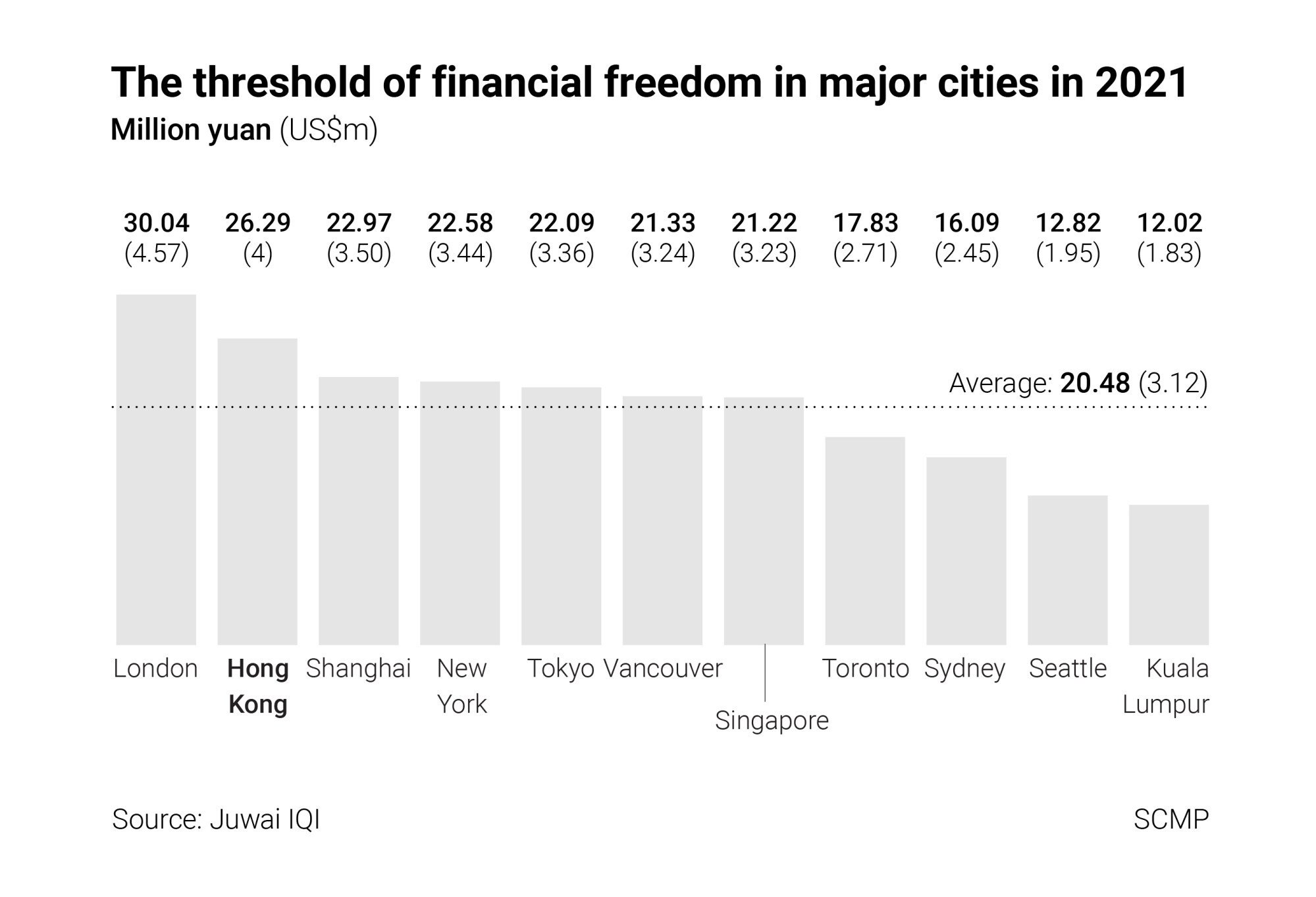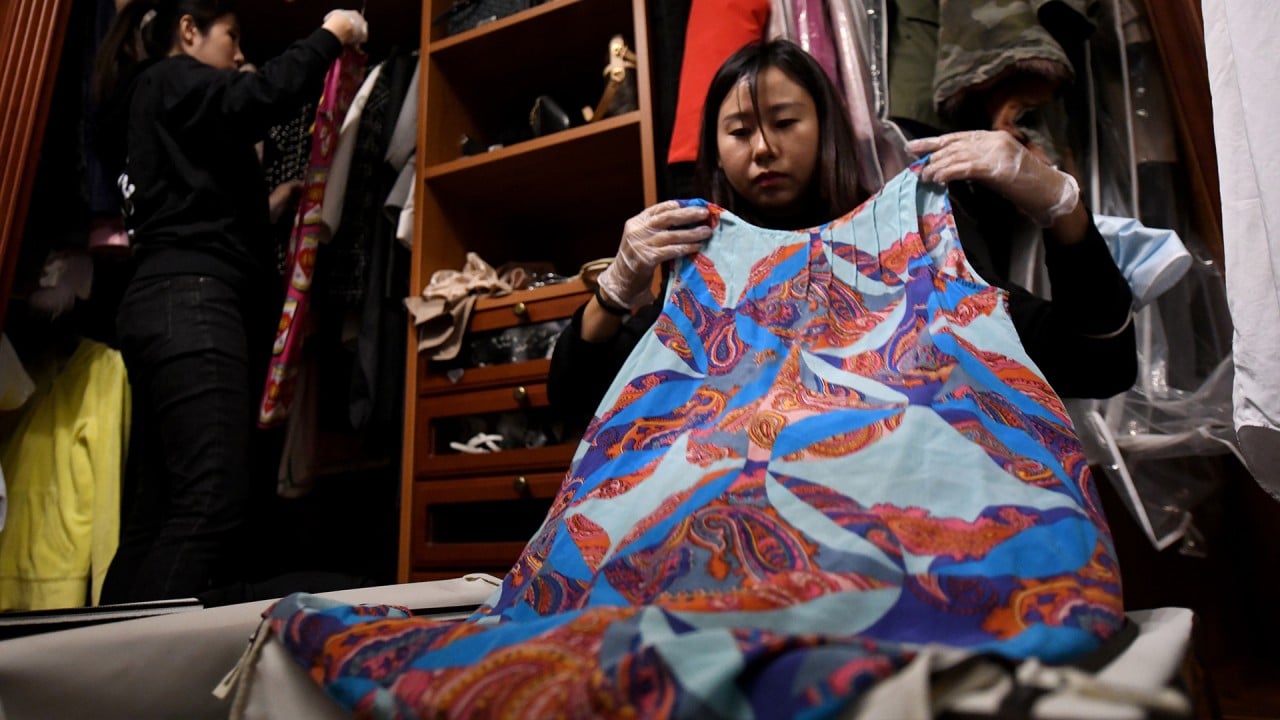
‘Financial freedom’ costs US$4 million in Hong Kong, second only to London, data from property portal Juwai shows
- The ability to retire comfortably and maintain an enviable lifestyle requires US$4.57 million in the UK capital and US$3.5 million in Shanghai, with Hong Kong in between, according to data compiled by property portal Juwai
- Singapore, regarded as Hong Kong’s regional rival as a finance hub, is seventh on the list of 11 global gateway cities, with a threshold of US$3.23 million
Singapore, regarded as Hong Kong’s biggest regional rival as a finance hub, is seventh on the list with a requirement of US$3.23 million.

“London is the only major world city [outside China] where it is more expensive to obtain financial freedom than it is in Shanghai or other Chinese tier 1 cities,” said Juwai IQI’s co-founder and group executive chairman Georg Chmiel.
A recent survey by Hurun found that “entry-level” financial independence in mainland China’s tier 1 cities like Beijing and Shanghai requires 19 million yuan (US$2.89 million), based on the same criteria as Juwai’s study.
“The key is the price of property,” said Rupert Hoogewerf, chairman and chief researcher of Hurun Report in an emailed reply to the Post. “I would expect the likes of London, New York, Tokyo, Sydney to be no more expensive than Shanghai, Shenzhen and Beijing.”
To put the amount into perspective, in Shanghai, 10 million yuan can buy a two-bedroom flat measuring 118 square metres in the Hancheng International residential precinct near Shanghai city centre, according to Anjuke, an online property agency.
One million yuan is sufficient to have two Mercedes-Benz sport utility vehicles (SUVs) parked on the driveway – the GLC 300 4Matic is available for as little as 458,800 yuan in Shanghai, according to online portal Autohome.
The most affordable city on Juwai’s list of international gateway cities is Kuala Lumpur, where a financially carefree existence would cost about US$1.83 million.
Trading Shanghai for Kuala Lumpur would free up about US$1.67 million that could be diverted into lifestyle upgrades, investments, starting a business or other expenses.
“Toronto, Sydney and Seattle are all also relatively affordable places to achieve financial freedom. The most expensive places overseas [outside China] to obtain financial freedom are London, New York and Tokyo,” said Chmiel.
Chmiel said some Chinese people were selling their tier 1 city flats after huge price rises and using the money to fund a much less expensive home overseas where they can have a better lifestyle. Many have used the savings to send their children to higher quality, less expensive English-language international schools



